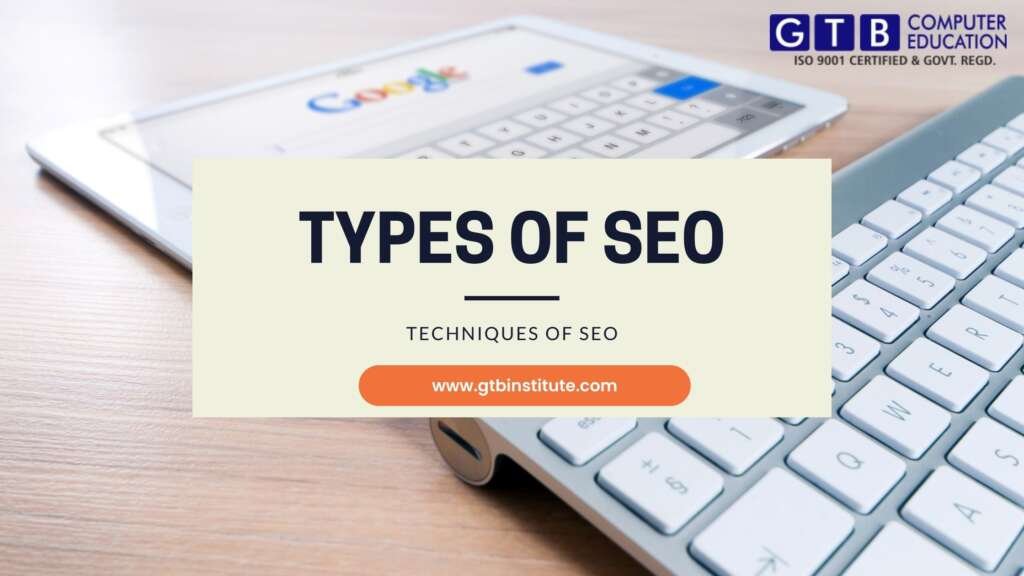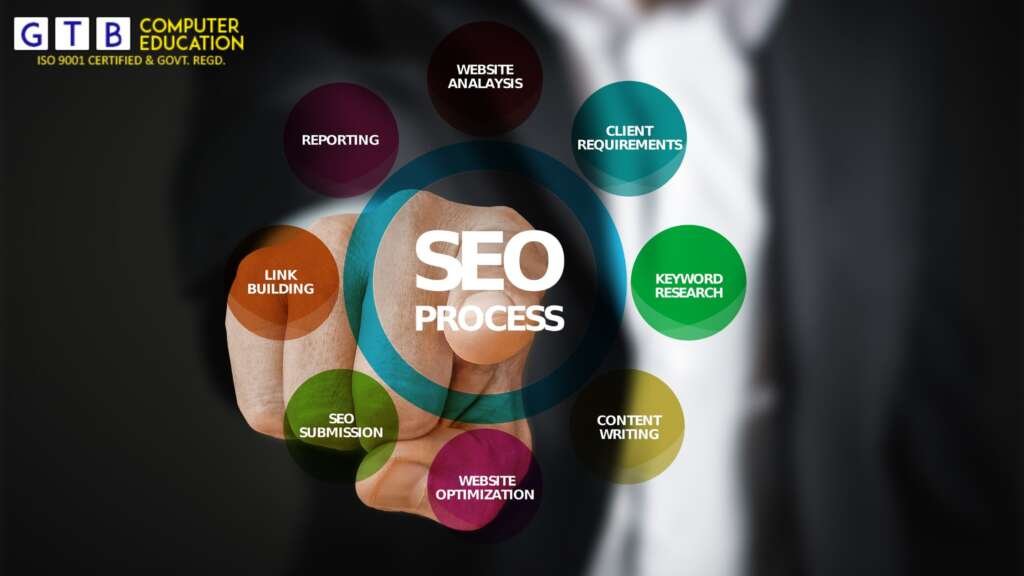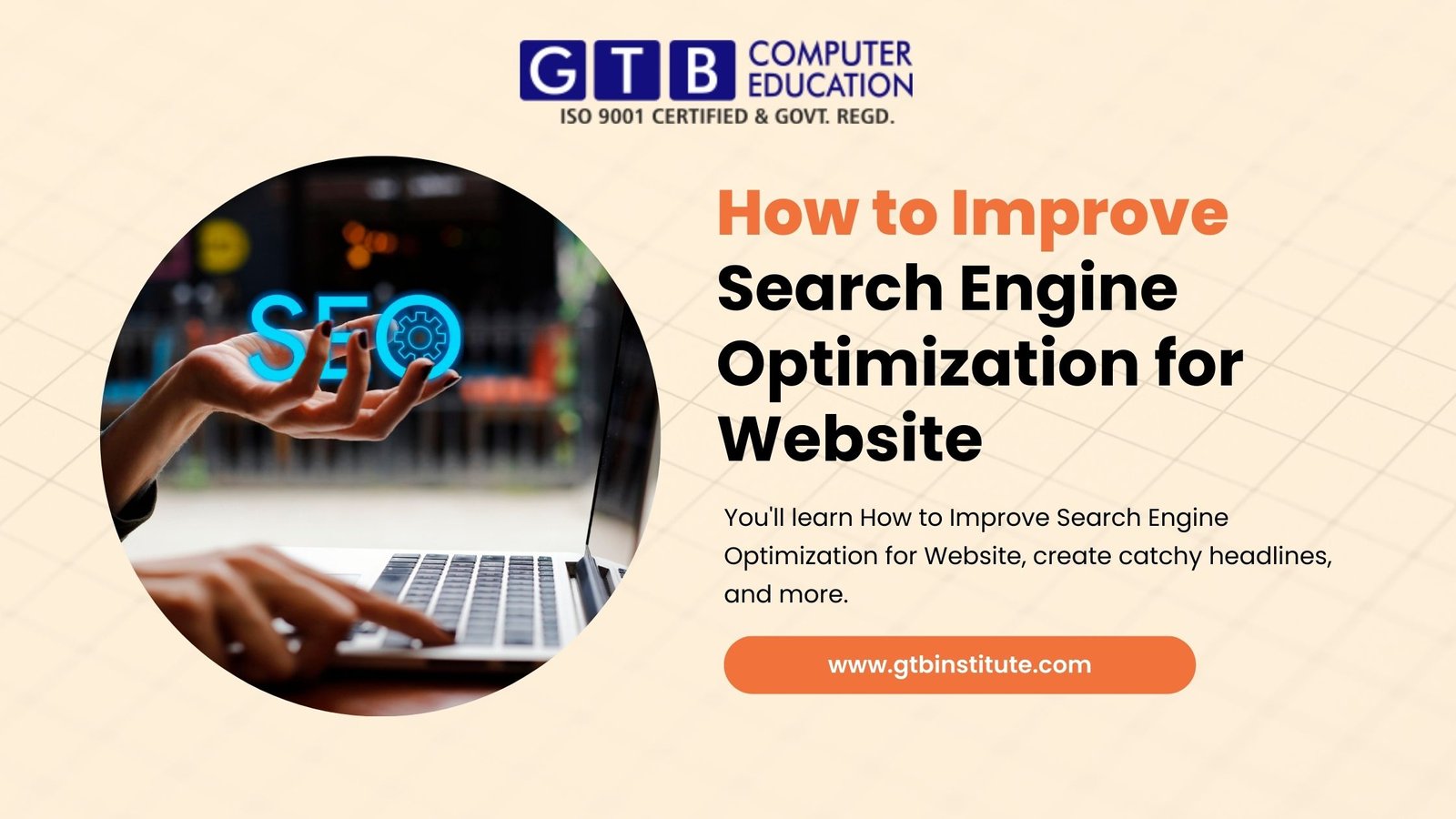In today’s digital landscape, having a strong online presence is important for enterprises. To ensure your website gets the visibility it deserves, search engine optimization (SEO) plays a vital role. By implementing effective SEO techniques, you can improve your website’s rankings on search engine result pages (SERPs) and drive organic traffic. In this article, we will explore what SEO is and discuss various techniques to enhance your website’s SEO performance.
Introduction
In the age of the internet, having a well-optimized website can significantly impact your online success. SEO is the practice of optimizing your website to rank higher on search engines like Google, Bing, and Yahoo. It involves various strategies and tactics that help search engines understand your website’s relevance and value to users.
Note: If you want to learn the Scope of Digital Marketing and strategies of Digital Marketing
What is SEO?
SEO stands for Search Engine Optimization. It encompasses a set of strategies and methods aimed at improving a website’s visibility and ranking on search engine result pages. The ultimate goal is to attract more organic (non-paid) traffic to your website, leading to increased brand exposure, higher conversion rates, and ultimately, more revenue.
Types of SEO
There are several types of SEO that businesses can employ to enhance their online presence. These include:
On-Page SEO:
This type of SEO focuses on optimizing individual web pages to improve their rankings and relevance. It includes optimizing elements such as page titles, meta descriptions, headings, content, and internal linking structure.
Off-Page SEO:
Off-page SEO refers to activities conducted outside the website to improve its search engine rankings. This includes link building, social media marketing, influencer outreach, as well as online reputation management.

On-Page SEO Techniques
To enhance your website’s on-page SEO, consider the following techniques:
Keyword Optimization
Keyword optimization involves strategically incorporating relevant keywords throughout your website’s content. Identify keywords that align with your target audience’s search intent and incorporate them naturally within your page titles, headings, meta descriptions, and body content. This practice helps search engines understand the relevance of your content to specific search queries and improves your chances of ranking higher in search results.
Quality Content
Creating high-quality, informative, and engaging content is essential for on-page SEO. Focus on delivering value to your audience by addressing their pain points, providing solutions, and offering unique insights. Well-written content with proper formatting, including headings and subheadings, not only improves user experience but also helps search engines understand the structure and relevance of your content.
Title Tags and Meta Descriptions
Title tags and meta descriptions are crucial on-page elements that directly impact your website’s click-through rate from search engine results. Craft compelling and concise title tags that accurately describe the content of each page while incorporating relevant keywords. Similarly, meta descriptions should provide a brief overview of the page’s content, enticing users to click through to your website.
URL Structure
Optimizing your website’s URL structure helps both search engines and users navigate and understand your website’s hierarchy. Keep your URLs descriptive, concise, and user-friendly, incorporating relevant keywords when possible. Avoid using unnecessary parameters or numbers in your URLs, as they can make them appear complex and less user-friendly.
Heading Tags
Heading tags (H1, H2, H3, etc.) serve as signposts for search engines, guiding them to understand the structure and hierarchy of your content. Properly using heading tags helps organize your content and improves readability for users. Ensure that your main page title uses the H1 tag, and use subsequent heading tags for subheadings and sections within your content.

Off-Page SEO Techniques
To enhance your website’s off-page SEO, consider the following techniques:
Building High-Quality Backlinks
Acquiring backlinks from reputable and authoritative websites is one of the most effective off-page SEO techniques. Backlinks serve as “votes of confidence” for search engines, indicating that other websites consider your content valuable and worth linking to.
Social Media Marketing
Leveraging social media platforms to promote and share your website’s content can significantly impact your off-page SEO efforts. Engaging with your target audience, sharing valuable content, and building a strong social media presence can attract more visitors to your site.
Social Bookmarking
Social bookmarking involves submitting and sharing your website’s pages or blog posts on social bookmarking sites like Reddit, Digg, and StumbleUpon. This helps generate traffic and build backlinks.
Influencer Outreach
Collaborating with influencers in your industry can expose your website to a larger audience and increase brand awareness. Influencers can share your content, mention your brand, and provide backlinks, thereby boosting your off-page SEO.
Guest Blogging
Writing high-quality guest posts for authoritative blogs in your niche allows you to showcase your expertise and gain exposure to a new audience. Guest blogging also enables you to build backlinks to your website, enhancing its off-page SEO.
Importance of SEO
With millions of websites competing for attention, SEO becomes crucial to stand out from the crowd. When your website ranks higher on search engine results, it becomes more discoverable to potential customers. Improved visibility translates into increased website traffic, which can be a valuable source of leads and conversions. By investing in SEO, you invest in the long-term success of your online presence.
Boosting Website Visibility
One of the primary goals of SEO is to improve a website’s visibility on search engines. When a website ranks higher in SERPs, it becomes more visible to potential customers who are actively searching for relevant products or services. Increased visibility leads to higher organic traffic and greater exposure for businesses.
Increasing Organic Traffic
Organic traffic refers to the visitors who land on a website through unpaid search results. SEO helps businesses attract a steady stream of organic traffic by optimizing their website’s content and structure. By targeting relevant keywords and providing valuable information, businesses can attract potential customers who are genuinely interested in their offerings.
Advantages of SEO
Increased Website Traffic
One of the primary advantages of SEO is the ability to drive significant amounts of organic traffic to a website. By targeting specific keywords and optimizing content, businesses can attract users actively seeking information or products related to their industry. With a higher ranking on SERPs, the likelihood of attracting clicks and visits increases, leading to a steady stream of valuable traffic.
Targeted Audience Reach
SEO helps businesses to reach their target audience more effectively. By optimizing website content and incorporating relevant keywords, businesses can align their online presence with the specific needs and interests of their desired customers. This targeted approach ensures that the website attracts visitors who are more likely to engage with the content and convert into loyal customers.
Long-Term Results
Unlike some forms of marketing that offer short-term results, SEO provides long-term benefits. Once a website achieves a high ranking on SERPs, it can continue to attract organic traffic and generate leads for an extended period. While regular maintenance and updates are necessary to stay competitive, the long-lasting impact of SEO makes it a valuable investment for businesses looking to secure their online presence.
Improved User Experience
Search engines prioritize user experience when ranking websites. As a result, SEO strategies often involve enhancing website speed, improving navigation, and optimizing mobile responsiveness. By focusing on these aspects, businesses can create a seamless browsing experience for users, leading to increased engagement, longer site visits, and improved conversion rates.

Tools for SEO
Keyword Research Tools
Keywords are the foundation of any successful SEO technique. Keyword research tools assist in identifying relevant keywords with high search volumes and low competition. These tools provide data on keyword performance, search trends, and related terms, helping you choose the right keywords for your content. Some popular keyword research tools include SEMrush, Google Keyword Planner, and Ahrefs.
On-Page Optimization Tools
On-page optimization is crucial for improving the visibility and relevance of your web pages. This SEO tool offers recommendations to optimize various on-page elements, such as meta tags, headings, URLs, and content. These tools ensure your web pages are optimized for search engines and user experience. Yoast SEO, and Moz Pro, are widely used on-page optimization tools.
Off-Page Optimization Tools
Off-page optimization involves activities outside your website to enhance its authority and reputation. This tool aid in link building, social media management, and influencer outreach. These tools help you identify potential backlink opportunities, monitor social media engagement, and track brand mentions. Popular off-page optimization tools include BuzzStream, Majestic, and Hootsuite.
Technical SEO Tools
Technical SEO focuses on improving website performance, crawlability, and indexability. This SEO tool analyzes your website’s technical aspects, such as site speed, mobile-friendliness, and XML sitemap. These tools identify and fix issues that may hinder search engine bots from properly indexing your site. Google Search Console, Screaming Frog, and GTmetrix are widely used technical SEO tools.
Content Optimization Tools
Creating high-quality, interesting content is important for SEO success. Content optimization tools help you optimize your content for search engines and users. These tools analyze keyword density, and readability, and suggest improvements to enhance your content’s relevance and effectiveness. Grammarly, Surfer SEO, and Clearscope are popular content optimization tools.
Local SEO Tools
For businesses targeting local customers, local SEO tools are invaluable. These tools assist in optimizing your website for local searches, managing online business listings, and monitoring local rankings. With these tools, you can ensure your business appears prominently in local search results and directories. Moz Local, Whitespark, and BrightLocal are well-known local SEO tools.

Conclusion
In conclusion, optimizing your website for search engines is a multifaceted process that requires attention to detail and a comprehensive strategy. By following the best practices outlined in this guide, you can significantly improve your website’s search engine optimization and outrank your competitors in Google and other search engines.
Remember to conduct thorough keyword research to identify the most relevant and valuable keywords for your business. Optimize your on-page elements, such as title tags, meta descriptions, header tags, and URL structure, to provide search engines with clear signals about your content’s relevance.
For more details about How to Improve Search Engine Optimization for Website
Visit our Blog & read out about SEO Course Training in Details
For the SEO Training demo class click on the link
Contact us at +91-80700-85700




